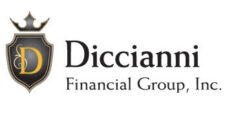How Preparing for Worst Case Scenarios May be a Winning Strategy
Over and over the lessons from history is that thorough preparation is the key to avoiding disaster. As we continue to feel the ups and downs of the past few years – Dow over 36000, pandemic, social unrest, market volatility, war in the Ukraine, and a return to “what’s next” for business navigating new ways of working, your best case for winning is preparing thoughtfully.
Assemble your Emergency Preparedness Kit
As the first decade of the new century progressed, we were faced with one disaster after another. Some were natural and beyond our control, while others were clearly man made. The difference in outcome, however, was not a twist of fate, but rather how adept we were in handling worst case scenarios. Since early in the decade, more than a few experts were aware of the potential pitfalls looming in home prices, mortgages, banking and business sectors. Even given their concerns, many chose to ignore the dangers and hope that the warning signs were wrong. The result was disastrous. Unfortunately, it is not uncommon for many of us to address our own financial security with the same ambivalence to dangers looming on the horizon. If we have learned anything, it should be to address anything in our financial future that is in our control. We should view each step of our financial stability with the same seriousness and attention that was given to Y2K. Ask yourself, are you prepared to buy a home, send your children to college, survive unemployment or illness, or retire comfortably and on schedule. The world has changed. Our wiser selves must adjust the way we prepare for important life steps in a way that honors the lessons learned from the past decade.
Prepare to Buy a Home
Before 2008, if you wanted to buy a home, there was inevitably a way. No money down, no-doc and interest only loans were part of the wave of endless enticements to encourage everyone into home ownership. Buying today requires the return of serious evaluation, credit readiness and money down in order to qualify for a loan. A mortgage is no longer a right, but a privilege to be earned. After identifying the median price of the home to be purchased, the buyer needs to save about 20% down money. In addition, they need to have a good credit rating, and a good credit score is not to be taken lightly. Having exemplary credit will help to secure the lowest rate possible. Even if you aren’t thinking about purchasing a home right now, saving as much money as you can assures that you’re ready when the time is right.
Prepare for College
If the thought of paying for your child’s college education drives you into the fetal position, you are not alone. While the cost of private school is still more expensive than state schools, tuition and fees are growing at a much faster rate at public schools. The dwindling of state funding in increasingly cash strapped states is leading to the disproportionate increase in price, and unfortunately, there doesn’t seem to be an end in sight. The best way to be prepared for any changes in college tuition is to start early and adjust as necessary. Another benefit of starting earlier is that your monthly contribution will be lower over a longer period of time. Waiting even a few years before beginning can make your goal more challenging. The best strategy is to start early and ratchet up your contributions as you approach the time when the money is needed. The key to success is time, consistency, and adjustment as necessary.
Prepare for the Unexpected
Though it was hard to foresee the endless trials and tribulations of the past two decades coming, would the impact have been lessened if we were more prepared? If having six months of emergency savings on hand was the rule, the impact of the recent economic crisis and pandemic would have been somewhat defused. Living paycheck to paycheck and heavily in debt made many Americans instantly destabilized when the crisis hit. If we enter the future any wiser, emergency savings should become the foundation that we build the rest of our financial house upon.
Prepare to Retire
Like saving for your child’s college education, the earlier you begin saving, the more you will reap the rewards. If you saved only $50 a month from the age of 23 at 5% until retirement, your $27,000 investment would be worth over $101,000. That same investment, if started at age 50, would turn your $13,800 investment into less than $26,000. It’s certainly nice to see your investment doubled, but it’s even better when it’s almost quadrupled. The simple secret is time. In order to be prepared to retire, you must start saving from the earliest age possible. Even saving $50 a month, which is $12.50 a week or $1.79 a day, gives you over a $100,000 by the end of your working life. If your employer offers matching contributions, push even harder to contribute as much as you can. A little can go along way if you start early enough.
The Unsexy Solution
As much as we admire the passion and reckless abandon of the person who lives on the edge, taking care of our financial health should be the most boring and predictable thing we do. The surprise outcome of the preparation for Y2K was how effortlessly we flowed into the new century. With the right attention and preparation, when the ball drops on life’s milestones, we should be ready to dance the night away.
Contact us when you need support with preparing financially for the major events in your life.

